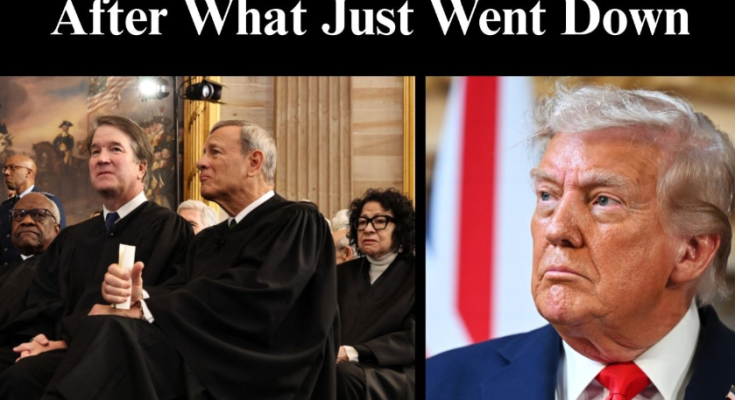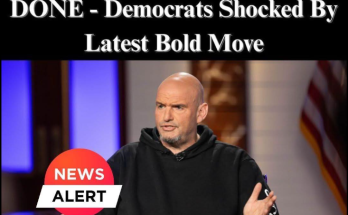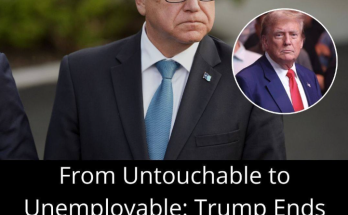
This article may contain commentary
which reflects the author’s opinion.
President Donald Trump has declared that “foreign interests” are attempting to get his tariffs struck down at the U.S. Supreme Court as a way to “meddle” in the upcoming 2026 midterm elections. If the Supreme Court strikes down his tariffs, the president warned that we would have to repay hundreds of billions of dollars to other countries.
“Those opposing us are serving hostile foreign interests that are not aligned with the success, safety, and prosperity of the USA. They couldn’t care less about us. I look so much forward to the United States Supreme Court’s decision on this urgent and time sensitive matter so that we can continue, in an uninterrupted manner to, MAKE AMERICA GREAT AGAIN!” Trump wrote on Truth Social.
“The full benefit of the Tariffs has not yet been calculated in that many of the buyers of goods and products, in order to avoid paying the Tariffs in the short term, ‘STOCK UP’ by purchasing far more inventory than they can use. That heavy inventory purchase is now, however, wearing thin, and soon Tariffs will be paid on everything they apply to, without avoidance, and the amounts payable to the USA will SKYROCKET, over and above the already historic levels of dollars received,” the president added.
Rick Crawford, R-Ark., who is in charge of the House Intelligence Committee, is pushing for big changes to how spy agencies do their jobs. He says that foreign agents are working with Americans to destabilize and divide the United States.
“I think there is a whole network of both state and non-state actors that bring that to bear here in the United States, that is to exploit any kind of political divide that might exist, or schisms that may exist, even within a political party,” Crawford told Just the News in a wide-ranging interview.
“So they kind of help sow discord. We’ve seen malign influence from state actors that include China, Russia, and Iran. But then there’s also the non-state actors that can be doing the bidding of a nation state,” Crawford said.
“For example, what if you had, let’s say Russia was essentially paying for cyberattacks against certain targets, or that China might be doing the same thing,” Crawford added. “China might be mobilizing the diaspora that lives here in the United States, maybe United States citizens, but they have this underlying allegiance to the mother country and China seeks to exploit that.”
Crawford added that the increasing cooperation between overseas bad actors and those on U.S. soil makes it a question of national security to push for counterintelligence reforms right away.
He praised FBI Director Kash Patel for doing a “tremendous job” in the intelligence community by coming up with new ideas and ways of doing things, and he urged other agencies to do the same.
Crawford cited a recent episode involving Chinese figures on U.S. soil in Michigan as an example of the sort of changing approach foreign adversaries are taking.
Crawford’s statements come at a time when the Treasury Department, IRS, and FBI are working harder to find out how foreign groups are utilizing U.S. tax laws and tax breaks to pay for and promote violence and disruption in the U.S.
Howard Lutnick, the Secretary of Commerce, said on Monday that the Trump administration is sure it will win its trade lawsuit in front of the Supreme Court. The issue is about new tariffs that the White House claims are required to protect American manufacturing from unfair competition from abroad.
“Tariffs are going to be a part of this administration’s national security and national economic protection of the American people,” Lutnick told Fox Business’ Maria Bartiromo on “Mornings with Maria.”
“We are gonna win the case, it’s pretty clear,” he said, adding that he attended the oral arguments at the Supreme Court.
When asked what options the president has if the Court rules against the administration, Lutnick said President Donald Trump has “all sorts of policies and tools” available, referencing provisions in U.S. trade law such as Sections 232, 301, and 338, which allow the government to impose tariffs or other restrictions in the name of national security or to counter unfair trade practices.


